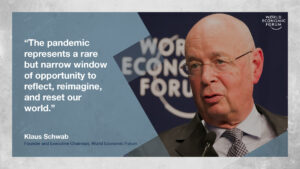The WHO’s Budget Crisis: A Shift in Global Health Power Dynamics

In a surprising turn of events, the World Health Organization (WHO) has confessed that it faces an unavoidable budget crisis, forcing it to initiate substantial cuts of 20% in its expenditures for FY2025. This financial strain is significantly attributed to the United States’ departure from the organization, leaving a staggering budget gap of $600 million.
The Impact of U.S. Withdrawal on Global Health
The United States has been a major financial contributor to the WHO, providing approximately 16.3% of its total funding between FY2022-2023, equivalent to about $1.3 billion from a total budget of $7.89 billion. Former President Donald Trump’s criticisms of the WHO have been pointed, particularly concerning accusations of complicity with China regarding the origins of COVID-19. He cited a stark comparison of the U.S. contribution—around $500 million annually—with China’s mere fraction, leading to claims of inequity and corruption seeping into the organization.
Trump has been vocal about his belief that the WHO has transformed into a corrupted entity, allegedly under the influence of Chinese leadership. In his own words, “The World Health Organization has become nothing more than a corrupt Globalist scam,” and he vowed to sever ties to prevent public health from serving as a cover for advancing global governance agendas.
WHO’s Challenges Amid Global Geopolitical Shifts
The WHO’s director-general, Tedros Adhanom Ghebreyesus, associated the substantial funding cuts with the broader economic and geopolitical challenges affecting the global health landscape. In communication to staff, he indicated that the dramatic reductions in official development assistance, particularly by the U.S., have severely disrupted operations across countries and UN agencies, including the WHO itself. The organization has had to work diligently to achieve cost savings, but the current conditions make resource mobilization increasingly challenging.
It’s worth noting that Tedros is not a medical doctor, marking a departure from the tradition of medically trained leaders in such roles. His rise was notably supported by Klaus Schwab, who has consistently influenced global institutions with significant repercussions for public health and governance.
Ties to Globalist Movements and the Pandemic Response
One important player in this narrative is the Bill and Melinda Gates Foundation, which has emerged as the second-largest donor to the WHO and played a critical role during the pandemic. Gates has advocated for the use of vaccines financed by his foundation, though complications arise when funding gaps occur due to changes in U.S. contributions. Recently, Gates himself has admitted that the foundation cannot fill the financial void left by the United States—a statement that some view as promising, suggesting a redirection of efforts prioritizing independent health governance.

In the larger scheme of global governance, a significant push from leaders supporting the “Great Reset” agenda has emerged. There have been discussions around allowing the WHO the authority to impose health mandates on nations globally, seeking to implement widespread health taxation. This raises pressing questions about the encroachment of democratic rights and national sovereignty.
The Threat of Centralized Control
The proposed “Pandemic Treaty” symbolizes a drastic shift, essentially granting the WHO the power to bypass national laws during health emergencies. This treaty, drafted in response to lessons learned from COVID-19, emphasizes a globally centralized approach to managing potential future pandemics. The rhetoric surrounding the treaty suggests a collective recognition of the need for an effective, coordinated international response, but it also ignites concerns over loss of local autonomy.
As stated on the World Economic Forum’s website, there is an urgent call for a "Great Reset" of capitalism—a reconfiguration aimed at harmonizing global economies and social contracts under the guise of progress and public health. But with this unified approach comes a perilous risk: the concentration of power in the hands of a few unelected individuals, with the potential to dictate the lives of billions.
A Path Forward for Global Freedom
Trump’s withdrawal from the WHO is viewed by many as a significant stand for national sovereignty and individual freedoms amidst increasing calls for global governance. As we navigate a world in flux, with global health, economies, and political systems intertwining, the conversation around health governance will continue to stir debate.
At Extreme Investor Network, we strive to provide our readers with comprehensive insights into these global shifts, helping to equip you with the knowledge necessary to navigate this complex landscape. As nations reconsider their affiliations and commitments to organizations like the WHO, the future of global health governance remains uncertain, ushering in both risks and opportunities for investors and citizens worldwide.
For more expert insights and analysis, stay connected with us as we explore the evolving dynamics of global health and its implications for our world.

